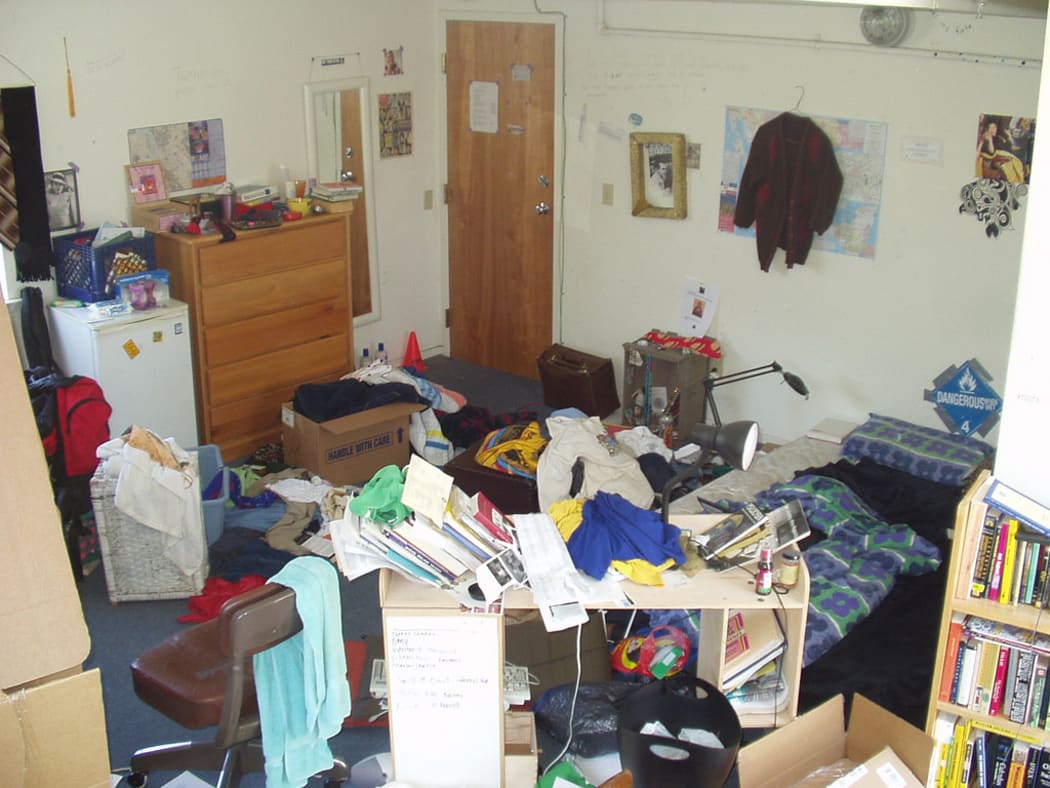There's a reason why tidying is called a chore - few people actually enjoy cleaning the house and organising the clutter.
Author and blogger Rachel Hoffmann sympathises with that view and offers practical advice on taking small steps and forming habits to help us become neater - while remaining a little lazy at the same time.

Photo: Flickr
"I want to be able to reach people who have full-time jobs, who live with roommates or maybe still live at home with their parents ... something that's where people are in their lives rather than this perfect vision," says Hoffman.
"Cleaning our house is a fairly low priority for most of us because we have so much else going on in our lives. The very small amount of free time that we have to ourselves, I mean, who wants to devote that to cleaning? Nobody.
"Because it's not a priority for us it falls by the wayside and then all of a sudden you look up one day and you're just surrounded by this mess."
Hoffman, author of UnF*** Your Habitat, has tips ranging from how to have 'that' conversation with flatmates to what sort of cleaning products you don't have to have.
Stop hinting
One of the trickiest situations is negotiating house clearning with people who share your space.
"Most people don't like confrontation, they don't like having to address these things, they expect everybody just to know what it is they want and because of that we get resentful, we get angry but we've never actually had the conversation," says Hoffman. "So just sit down and talk."
Instead of leaving a note or piling belongings in front of a flatmate's door, have the conversation early.
"Figure out what needs to be done, how often it needs to be done, what chores do you each like and hate."
As much as possible take the emotion out of the situation.
"At this point, all you're doing is making a chore chart."
Avoid marathons
"Most of us associate cleaning with this giant project ...The marathon makes us hate cleaning.
"Put a little bit of investment in on a very regular basis and you're accomplishing the same things."
The 20/10 approach
Instead of the marathon, Hoffman advises cleaning in short, manageable chunks of time; 20 minutes of cleaning followed by a 10 minute break.
"You set a timer, the timer goes off and you can be done then you go and you do something you enjoy ..whatever that reward looks like for you. It breaks it up and it makes it feel a little bit less overwhelming."
Use your downtime
"Whether you're waiting for the coffee to brew, if you've got kids, you're filling up the bathtub - that takes a while and you have to be there to supervise - that's all time that you need to wait.
"When you have dinner on the stove and it's simmering that's a great time to do the dishes you've already created."
Take before and after pictures
"Even when you make a dramatic change you don't always see it when you're in it.
"For a lot of people too, it's helpful to have a picture of how your space looks clean. You can say 'It looked like this once and I did that. I can do that again'."
'I love white vinegar'
"It's cheap, it's very easily accessible and it can be used for so many different things", she says, from washing floors to descaling a tea pot.
"You don't have to have all these specialty products."
Among Hoffman's other tips: don't put it down, put it away and do the stuff you're dreading the most first.
Clean up your digital life too, she says. "Even just a little bit of attention to your inbox every day ... if you take 30 seconds just go in and delete [messages] or even better unsubscribe."
Circumstances such as chronic illness or pain, depression or physical disability can contribute to mess in the home, and it's a case of doing what you can in the moment. "Don't beat yourself up about it but have a game plan for when you do have the energy or the time to deal with it."

